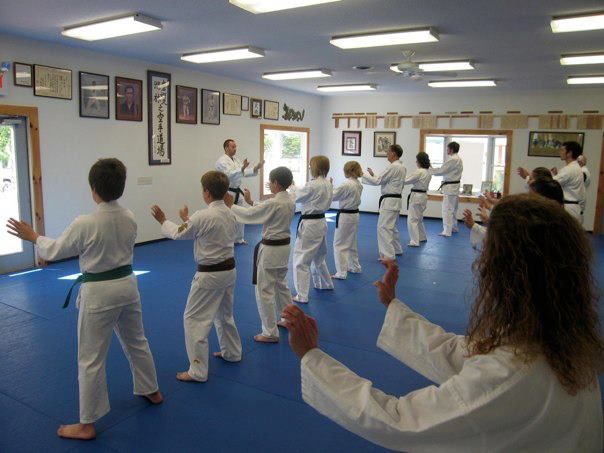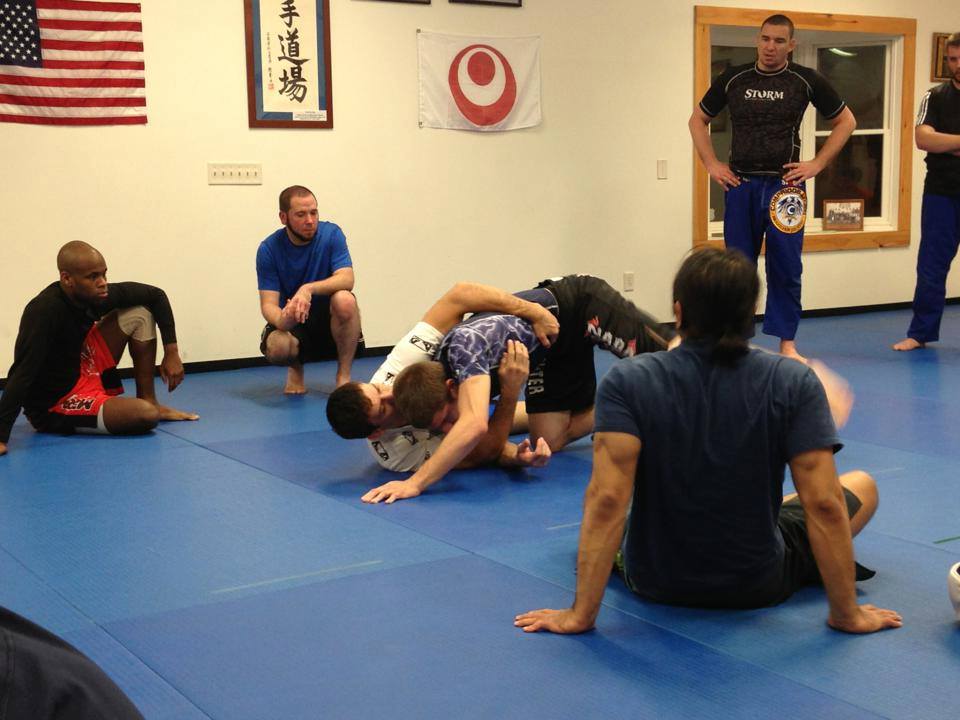
It’s normal for us to process the world through our ‘ego’ or the part of our minds between our conscience and sub-conscience. Our ego generally makes it possible for us to interact with our world, and provides us with a sense of self-esteem and self-importance. As ’normal’ people, we need our ego as a defense mechanism against potentially threatening aspects of reality. Part of personal development in the martial arts is letting go of our ego and finding more inner calm and peace. Although we can refer to this as ’spiritual’ development, it is not intended to be in conflict with the spiritual aspects of one’s religious beliefs.
Martial arts, rooted in ancient traditions and philosophies, have long been associated with philosophical and spiritual teachings. Practitioners are often drawn
One of the pitfalls of martial materialism is the emphasis on rank and hierarchy. Many martial arts systems have belt-ranking systems that signify a practitioner's level of skill and experience. While these systems can provide structure and motivation for the student’s advancement, they can also lead to a focus on attaining higher ranks for status or ‘ego gratification’ rather than genuine mastery of the art and personal growth.
Related to the distraction of rank is focusing too much on advanced techniques or extreme training. Martial arts programs will typically have a progression of material as students gain experience. Students focus on fundamentals early in their training and learn increasingly more difficult strategies as they go. It can be tempting to view learning advanced strategies as opportunity to look down on lower level students. Some students will actually make it their mission to learn advanced strategies before mastering those on a lower level just to upset the established hierarchy and advance their own external progress. Likewise, some students will try to make their training more extreme than others for the same reason. All of this can become a diversion away from personal development. Another example of this is the practice of ‘Kobudo’ or classical weapons. Too often in the western world this becomes nothing more than a power or ego trip for the practitioner, with little value in self-defense.
Other examples of martial materialism pitfalls are:
Elaborate Gear & Products - A variety of gear and products can be used when practicing a martial art. This can include uniforms, ‘no-gi’ equipment, sparring gear, accessories, specialty drinks or food, etc. Although it can be fun to get high-end or extravagant stuff, students should not become preoccupied with this and stay focused on their training. Students should base their gear and products on what will enable them to train well.
Culture Crazy - Martial arts can come from different parts of the world. Although it’s fun and enriching to learn the terminology, history, and culture related to a martial art, students shouldn’t focus so much on this that it detracts from their training and progress or let this become another way to think of themselves as better than others. Students should never indulge in ‘cultural appropriation’ or reject these aspects of a martial art. The cultural aspects of a martial art should be shared and enjoyed with others in a positive and constructive way, but always be second to physical and personal development.
Power Trips - Sometimes students who have gained significant experience over a period of time will take on a role in helping with classes. This, too, can become about ego gratification or a power trip rather than just helping others learn. Students who take on a role in teaching martial arts need to realize the critical importance of setting an example and being a role model for the personal development aspects in that journey.
Exclusive Cliques - Although we can make amazing friendships in the dojo, we need to be careful not to let that get in the way of training. When friends or groups of friends make a practice of excluding others from their interactions it can be a huge distraction for themselves and others...especially if they’re causing drama in the process. Students can enjoy their friendships in the gym without forming cliques that detract from the overall team comradery there.
Hero Worship - Another example of martial materialism is the tendency for some students to focus too much on notorious figures or ‘heroes’ of their art. These students may see opportunities to meet or train with these people as another elevation of their own status. Some of these students will actually tend to identify more with these heroes or their team, and start to look down on their primary instructors and team. This will not only delay their personal growth, but cause dysfunction in their home gym training. This is also super disrespectful towards the people who probably provided them with the opportunity to meet some of these hero figures in the first place.
Words Get In The Way - Personal development comes from immersion and focus in training. Although it can be helpful for students to keep a journal or notes about their training and experiences this, too, can actually be a distraction. Notes are good for reference when practicing new material away from the gym, but should be discarded once the student doesn’t need them. Similarly, making a habit of talking too much in class will block personal development, too. In the modern era, social media can also become a place where focusing about training and accomplishments can contribute to this aspect of martial materialism.
Check back next month as we look at ways to combat these distractions in part II of ‘Martial Materialism.’



 RSS Feed
RSS Feed